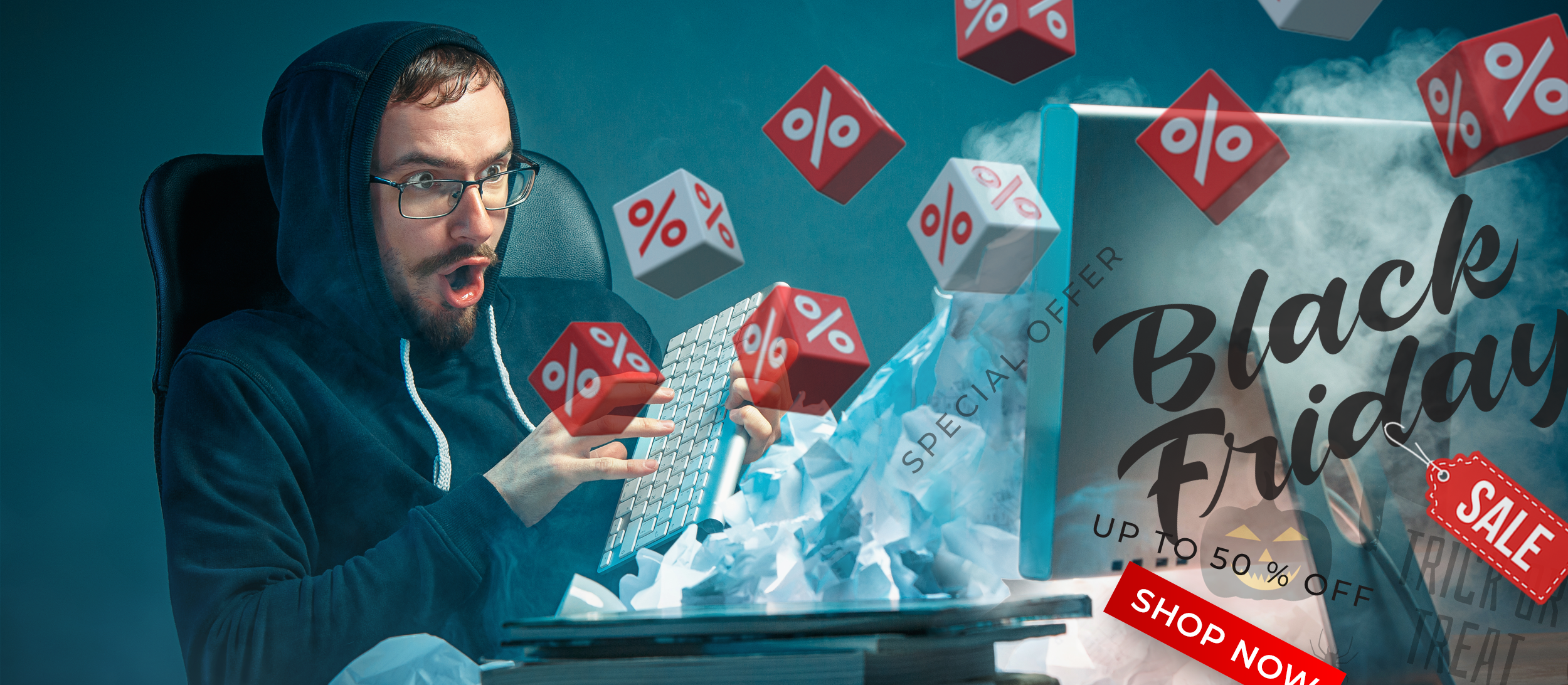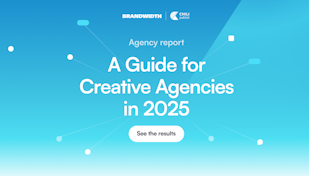How creative automation will help you and your designer survive the 2022 seasonal holiday hell

It’s that time of year where the days are growing shorter and colder, and your designer grows anxious. That can mean only one thing - seasonal season is in session! From Halloween, regional holidays, and the one-two punch of Black Friday and Cyber Monday, all the way to the grand finale that is the Christmas season - it’s hardly a jolly time to be a graphic designer.
Unsurprisingly, there’s a LOT of expectation for advertising and marketing campaigns to deliver during these annual events. And with good reason, too. Sales conversion rates more than doubled during the calendar periods (2.5 x to be exact), with email open rates increasing by 150% during Black Friday and Cyber Monday alone. Websites and e-commerce platforms also see substantial growth according to Socital, with traffic jumping by a massive 45% throughout the festive season.
Beware the versional vortex
Make no mistake, designers don’t fear the white screen or page, they thrive on the adrenaline new campaigns bring with. But when the idea is ready for execution, there’s a whole new level of project management hell they go through. Trust me, as a designer, I know.
**My top demotivating variables gnawing at my creativity and overall will to live work? **
- Changing opinions on the design, layout, execution, you name it (pick a path and stick to it )
- The endless variation requests and the spiraling vortex of errors that comes with (hello, loophole nightmare on design street! )
- Endless approval hurdles and cycles to leap through just attain final sign off (version finalv785forrealnow.pdf ring a bell? )
- Not to mention the dreaded final phantom: Last. Minute. Changes. shudder
All these and more only slow down the process, muddy your road to market, and leave you dealing with a content gap for every seasonal top topical on the calendar. And that’s just what it takes to get a final approval on your original design idea for the campaign.
When the idea is finally approved, it still needs to be adjusted for the different channels. You're not just designing for an advert, your idea should visually translate into a billboard, beach flag, full-page advert, wrapping, label, packaging, Facebook banner, Facebook carrousel, Instagram square post, Instagram story, website banner, e-mail signature, ... Need I go on? And if you’re a global brand, local teams will need local languages.
So, this begs the question:
How can marketers help the designers remain focused, agile and empowered, even when under that peak period pressure?
Part of that solution comes from having the right development process married to technology that promotes streamlined design and output. Another part of the solution will come from a more humane approach towards the hectic calendar schedule and the people juggling the creative killer knives.
1. Go tech - bridge that content gap
The tech part is easy. This is where marketers can score big with [creative automation](@117855754). The definition is self-explanatory, you’re automating the creative production process. By turning an original design into a Smart Template, you’ll be empowering local teams to turn the visual into the output you need. Your designer can do it, but so can everybody else.
By optimizing this design adaptation process, you’re actually speeding up the T2M for the entire team and freeing up time your designer can use to embark on new creative journeys.
And if you really want to maximize your automation investment, look into personalization and customization. Both do wonders for conversion campaigns, especially when you want your marketing output to capitalize on that increase in customer purchasing activity. They help free up resources by automating repetitive tasks that normally eat up a substantial chunk of a designer’s day.
Pop-up experts Sleeknote very much agree - in fact, they see it as a key recommendation for businesses that want to tap into that seasonal spend.
With brick-and-mortar and e-commerce-based shopping continuing to soar as we head into this all-important quarter and into 2022, marketers and creative designers need to leverage smart thinking like this in order to mentally prepare for what’s to come.
2. Stay humane - be the better marketer
When it comes to the human part, that’s all on you. If you’re a marketer managing design, allow me to share a few pointers:
Plan ahead
Create that all important plan of action, set your project milestones and make sure you hit them every time. (Use a tool to provide clear briefings!)
Prioritize creativity
Utilize creative automation and Smart Templates to give designers back the creative time they normally spend on repetitive tasks and admin. (Don’t let us run low on creative fuel)
Work to scale
Work more efficiently, scale your outputs and reduce your operational cost. (and why not reinvest the savings into a raise for your designer? No? Too soon?)
Embrace the recognition revolution
Acknowledging achievements and the creative output of a design team can do wonders for morale. (I know it does for mine)
3. Stay true – be the better designer
It’s not all on you, though. Designers are their own worst enemies when it comes to procrastinating and avoiding the inevitable. However, if we play our cards right, there’s a lot of untapped creativity just waiting to be released into campaigns that could just be their best creative work to date. My top recommendations to help your designer become the better designer:
Find that better work/life balance
We all need an avenue to escape and recharge our batteries. I help clear my mind by jumping on my bike and heading out for a much-needed ride.
Do things differently
Monotony and repetition can really stifle your creativity so challenge yourself to do something different today.
Keep the communication flowing
Be honest and indicate what is and isn’t feasible while respecting your own boundaries.
Stay curious but to thine own self be true
Everyone and their mother is allowed to have an opinion on your design proposal, but you are the guardian of your own style. Your boss or client are investing in your vision, talent, and skills. You can be open to suggestions, but in the end, you are the design's keeper and visionary. From idea to execution to repurposing. (and don’t be afraid to embrace automation technologies that will make your life simpler too)
Need more tips and tricks to help the stress of that seasonal onslaught? Check out this insightful article from Smashing Magazine for more help and advice.
**So, what do you say? **
Sharpen your pencils, fire up InDesign®, Miro-map that briefing, get your C-level ducks in a row, and let’s tackle whatever top topical 2022 throws at us! We got this.
Marketing,
People
Steve Beernaert
Oct 28, 2021


